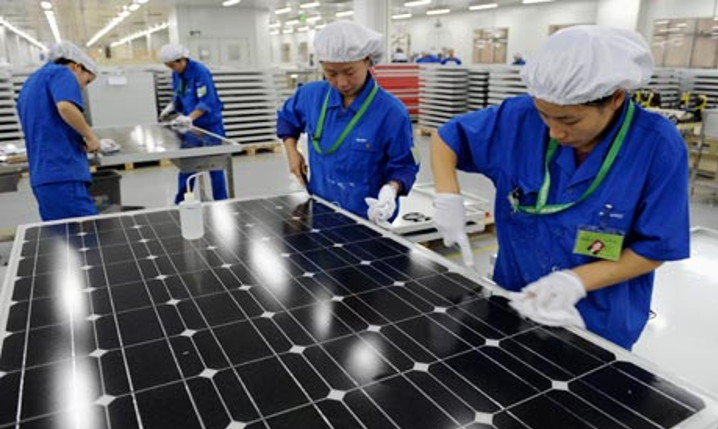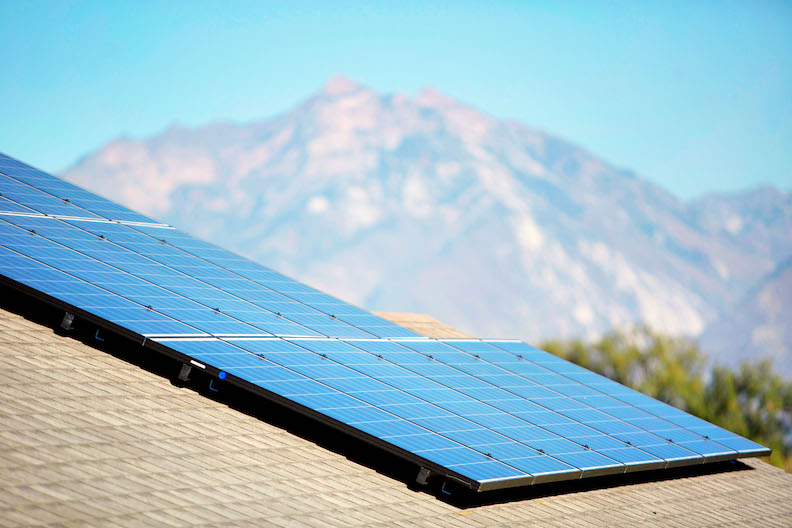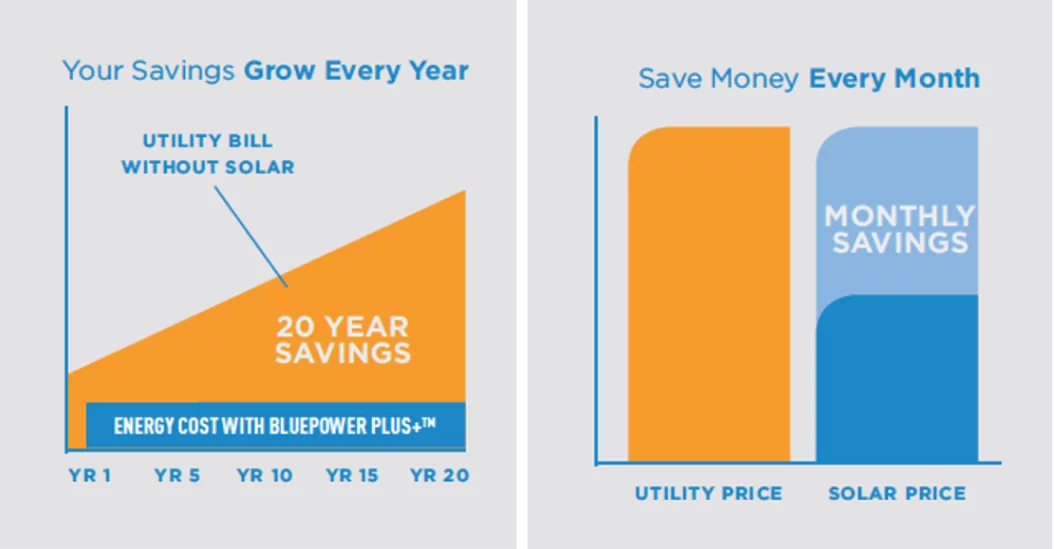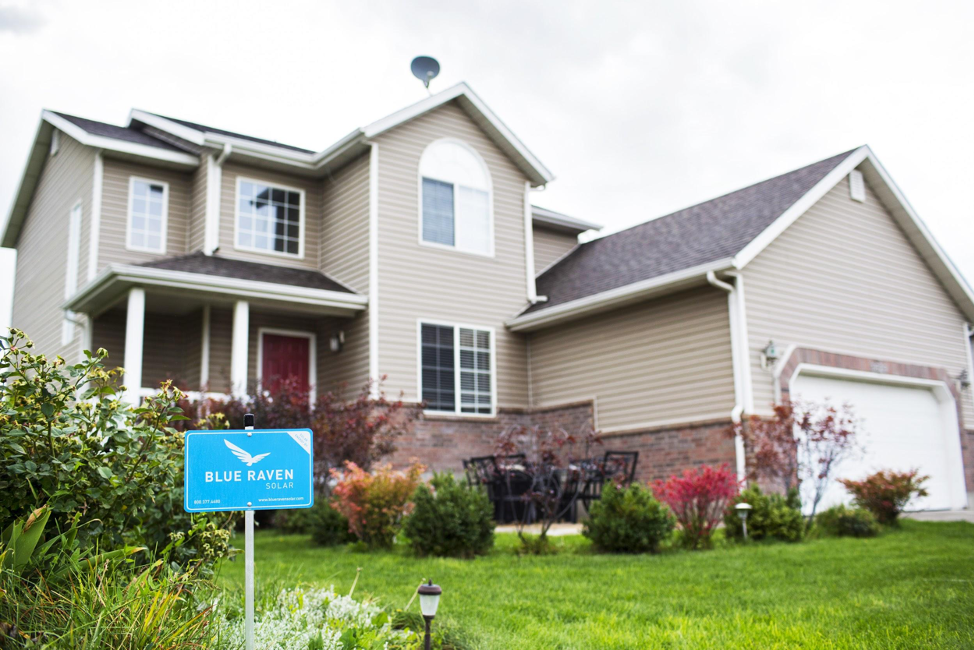
Over the course of sixty days, we’ve seen a novel virus spread from one city in China to hundreds of countries across the globe. For most Americans, COVID-19 has made the last month feel like a complete blur. We’ve gone from casually checking our phones for updates on the spread of the virus to being encouraged to practice social distancing and working from home.
As the health of our nation and the rest of the globe is a primary concern, the economy has taken a huge hit. Many companies and corporations have been forced to close, with potential but unforeseeable long-term effects. Over the last week, the realization of a possible recession has crossed most of our minds. As Americans face this period of change and uncertainty, it’s likely that they’ll begin to be much more conscious and careful with their purchasing decisions.
With that said, Americans considering solar in 2020 might think that COVID-19 has put their solar plans on hold. While drastic times may call for drastic measures, we believe that solar can be a great savings option for most American homeowners, even and perhaps especially during a recession. To back up our claim, this post will be dedicated to answering some COVID-19/recession-based questions that may now be on your mind if you’re considering solar.

Coronavirus Started in China… so Shouldn’t that affect How Much Solar Panels Cost?
With many Chinese companies shutting down for 4-8 weeks, it seems obvious that a shortage of work would cause an increase in the cost of a product, but for some solar companies that simply isn’t true. While the majority of solar panels are manufactured in China, some companies have a large quantity of panels stockpiled in the USA. So even though solar manufacturing might have slowed down in China for a period, American companies are still able to keep up with their installations. Over time, we may see an increase in the cost of solar panels due to Coronavirus (there’s really no way of knowing), but for now the major effects that Americans will see will likely be on the sales and installations end of the solar process.
As COVID-19 infects more people in the United States, solar companies may have to pause non-essential activity. The goal of our nation is to practice social distancing in order to slow the spread of this virus.
Blue Raven Solar is committed to preserving jobs while maintaining health and customers can choose to conduct consultations and appointments virtually. Our installation teams have been outfitted with Tyvek suits, booties, gloves, rubber respirators, and masks to ensure client and team safety.

But Isn’t Solar a Non-Essential Purchase?
With electricity available in just about every American household, solar panels are not necessary to power your tv, charge your phone, or switch on a light. So, you’re probably wondering: why would anyone consider solar during tough financial times?
Unlike other non-essential purchases, solar is able to make an immediate impact on your utilities bill. The moment that your solar system is connected to the grid and turned on; it will start to generate electricity. Every watt of electricity generated by your panels is one less watt for which you must pay your utility provider at the end of the month. So, considering solar as a “non-essential” product during a recession should be irrelevant to a potential customer’s buying decision because it can make a huge impact on your wallet.
We believe that solar panels are both cyclical and counter-cyclical. Thus, when the economy is thriving, solar panels will sell. When the economy is struggling, solar panels will sell. To make matters more interesting, we believe that solar may become even more popular during an economic downturn. Why?
Well, in times of financial difficulty, all homeowners look for extra ways to save. They make simple cuts to their budget, purchase less non-essential items, and take less risks. One obvious and easy solution to saving money at home is reducing your energy bill. Fortunately, there is no more effective way of doing that than going solar.
As long as there is a sun in the sky, solar will always pay its dividends at the end of the month. By constantly generating electricity throughout the day, a solar system can save tens of thousands of dollars over its lifetime. But you’re probably thinking: how can I afford to put thousands of dollars down while the market is extremely volatile?
Doesn’t a Solar System Cost Thousands of Dollars?
One of the main deterrents for a homeowner considering solar is its large price tag. A solar system can be in the $15,000 to $30,000 price range, depending on system size and solar panel quality. That price range can be very intimidating for most homeowners.
What homeowners don’t realize is that there are a variety of ways to finance a solar system. Of course, the quickest way to save when buying solar is by purchasing it outright, but there are other methods to get your system and still experience immediate savings.
Many solar companies offer effective loan programs that allow homeowners to pay a monthly bill that costs less than their original utilities bill. Others offer Power Purchase Agreements (PPAs) or leasing agreements, both of which allow solar companies to put their solar panels on a homeowner’s roof for zero dollars down and no extra payments. This means that you do not own the system, but the solar company will sell you the electricity the system generates at a lower than retail rate. This can be a great option to access smaller savings for little to no price, but PPA’s and leases generally have rate escalators built in throughout the contract.
As you can see, the more a homeowner understands about financing options within the residential solar industry, the more viable having solar panels becomes.

At Blue Raven Solar, it is our mission to help homeowners save, independent of the economy’s status. While PPA and leasing agreements may appear more realistic during a possible recession, we know owning solar panels will save you a lot more in the long run. Many homeowners don’t have sufficient funds to buy their panels outright and taking out a loan during a financially trying time might seem counter intuitive.
However, Blue Raven Solar has created a loan program called BluePower Plus+, where we cover your first 18 months of solar loan payments. Here’s how it works: you will frame a loan with one of our loan providers and each month, we will send you a check that covers the cost of that loan.

Blue Raven Solar is different from other solar competitors because we only offer ownership deals. Other companies that offer PPA and leasing agreements offer great initial benefits, but down the line they charge higher prices for the electricity that the system on your roof generates, decreasing the majority of your savings. We know that is in the best interest of our customers to own their panels for several reasons:
- Gain access to the solar tax credit (ITC), which can cover up to 26% of the cost of your system
- Gain access to local/state incentives like property/sales tax exemptions and net metering
- Once your system is paid in full, you could be paying just a small monthly fee of around $10 to stay connected to the grid
All in all, we like to frame our product as a long-term investment. Through a solar panel’s twenty-five-year lifespan, it will pay for itself plus an extra 10-20% of what you originally invested.
What Happened to the Solar Industry in the 2008 Recession?
If you’re still doubting the proposition of investing in solar during a probable recession, let’s take a look back at the solar industry about twelve years ago. 2008 marked one of the worst recessions in United States history, leaving 2.6 million Americans jobless. Of course, this situation was not ideal for the relatively new residential solar industry, but many companies found ways to adapt their financing programs and feature government incentives to make great packages for many American consumers.
As a result, many solar companies were able to avoid disaster in 2008 and even turn a profit in 2009. According to the Solar Energy Industries Association (SEIA), “[The] overall U.S. solar electric capacity, including both photovoltaic and concentrating solar power installations, increased by 37 percent. This was driven primarily by strong demand in the residential and utility-scale markets, state and federal policy advances and declining technology prices. As a result, total solar industry revenue reached $4 billion, a 36 percent increase over 2008” (SEIA.ORG).

With that being said, the solar industry has changed quite drastically in the last decade, but with so much competition, solar companies are constantly working to provide less expensive solar packages. As a result, the 2020 solar industry is accessible to the majority of American homeowners, even during an economic downturn.
Many government representatives want renewable energy to become a staple in the American Economy. House democrats are already starting to propose a new renewable energy tax credit to replace or extend the current wind and solar tax credits that are set to expire in 2022 (the last time a long-term renewable energy tax credit extension was created was after the 2008 recession in 2009).
The hope for many government officials this time around is to make renewable energy a central part of the government’s plan for economic recovery. If this were to happen, solar buyers in 2020 and the following years would likely be benefited by large savings incentives.

Blue Raven Solar is Committed to Its Customers
The next couple of months may be financially daunting, anxiety inducing, and socially distant, but at Blue Raven Solar, we are committed to staying closely connected to our customers. It is our mission to make homeowners’ lives better by reducing their energy bills, by increasing their reliance on clean and abundant renewable energy, and by providing a world-class customer experience through a reliable sales process and a speedy, high-quality installation.
We know that solar is a great investment, no matter the status of the global economy. If you’re curious to see how much solar can save you and your family, enter your name, email, phone number, and zip code in our Estimate your Savings Calculator. With a free and zero commitment five-minute consultation, you’ll be able to know how much you can save and whether solar is right for your unique situation.
Click the link below to get your free solar consultation today:
Remember to stay healthy and practice social distancing!
Sources:
- https://www.seia.org/news/us-solar-industry-trade-association-reports-strong-growth-2009-despite-recession
- https://www.greentechmedia.com/articles/read/can-rooftop-solar-thrive-in-an-economic-downturn
- https://morningconsult.com/2020/03/17/house-democrats-push-for-renewable-energy-tax-credits-in-coronavirus-stimulus/
- https://www.cleanenergyauthority.com/solar-energy-news/china-limits-new-solar-manufacturing-091813
- http://newenergynews.blogspot.com/2009/11/good-thing-about-recession-if-you-want.html


Sorry, the comment form is closed at this time.